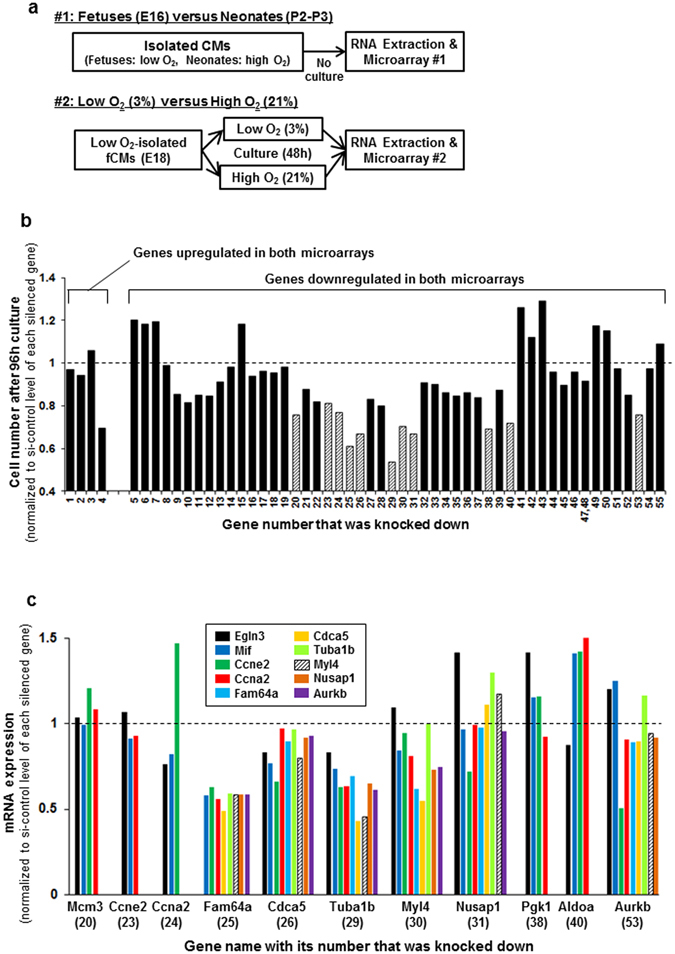Figure 3.

Fam64a is identified as an essential molecule for fetal cardiomyocyte (fCM) proliferation at the late embryonic stage. (a) DNA microarrays were performed with two sample sets—array #1: fetuses versus neonates, and array #2: fCMs cultured under low versus high O2 conditions. For array #1, CMs were isolated from fetal hearts under low O2 conditions or from neonatal hearts under high O2 conditions, and total RNA was immediately obtained (with no further cell culturing). In array #2, fCMs isolated under low O2 conditions were separately cultured under low or high O2 conditions, and then total RNA was extracted. (b) Each of 55 selected genes was knocked down in late embryonic stage fCMs (E16–E17) isolated under low O2 conditions. The cells were cultured for 96 h, and proliferative activity was evaluated by cell counting. Eleven genes (hatched bars) were selected as showing strong proliferation-inhibiting effects when knocked down. The Hist1h2ao (No. 47) and Hist1h2af (No. 48) genes had no specific siRNA available; therefore, an siRNA targeting both genes was used. Data are shown as normalized to the si-control level of each silenced gene, set at 1. This experiment was performed once for screening purposes. (c) In fCMs (E16–E17) isolated under low O2 conditions, each of the 11 genes selected in (b) was knocked down and the mRNA levels of the indicated genes were evaluated by qPCR. Knockdown of Fam64a resulted in the strongest repression of cell cycle-promoting genes. Data are shown as normalized to the si-control level of each silenced gene, set at 1. This experiment was performed once for screening purposes.
